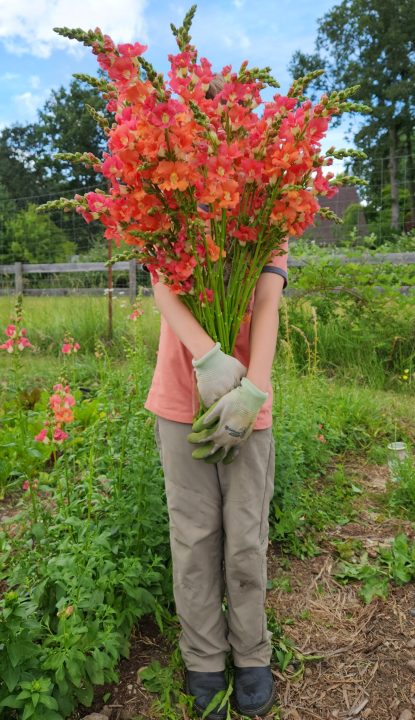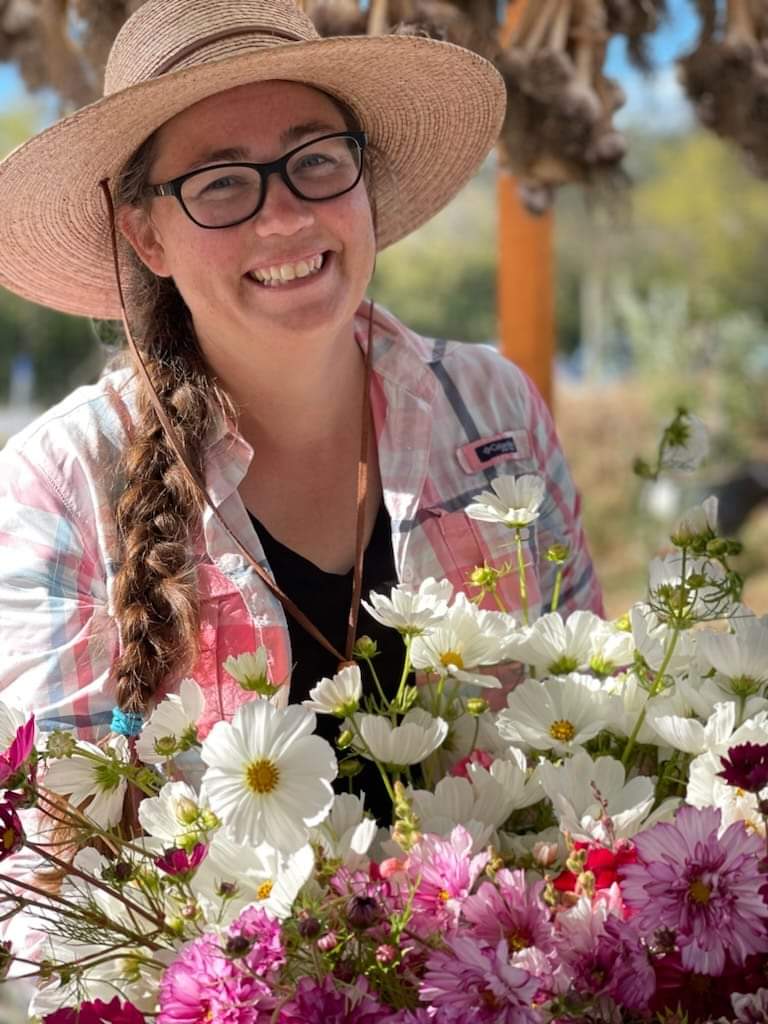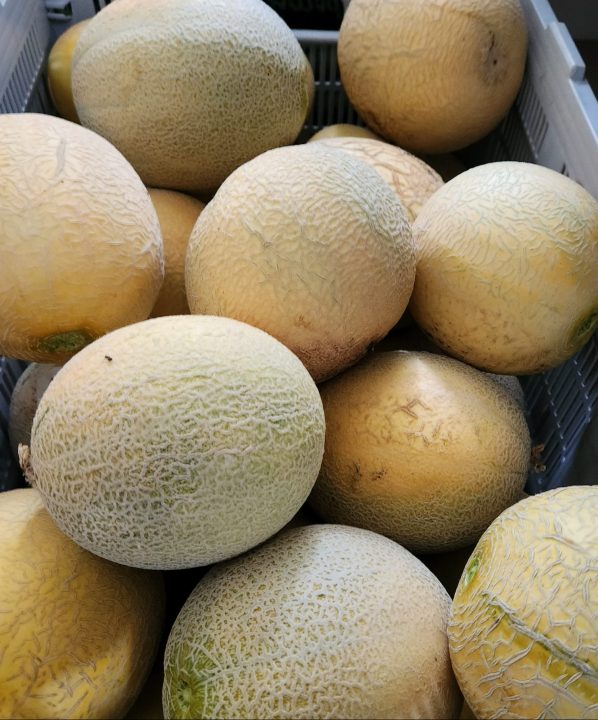Young Agrarians is celebrating the tenth year of the Business Mentorship Network (BMN) program in BC and the second year of the program in the Prairies! If you are a new farmer or the next generation to take on your family farm and need support to figure out the business aspects of your farm consider applying for the 2024/2025 cohort. The BMN offers business mentorships to a diverse array of new and young farmers/ranchers/producers. Through one-on-one mentorship, peer networks and online workshops new farmers develop the skills necessary to operate ecologically sustainable and financially viable farm businesses.
Apply for the 2024/2025 program here – applications processed in October .
Check out the Business Mentorship Network page for more information!
Over the next few weeks we will introduce you to each of the new farmers in the 2024 cohort to hear about the arc of their farming journey, what their hopes are for the season ahead and what inspired them to reach out for business mentorship. To access more of these stories head over to our blog here.
Meet a Mentee: Gavin and Katy Emanuel
We are Gavin and Katy Emanuel and we operate Tiny Farm Foods and Secret Garden Cut Flowers. Our mentor this season is Shellie MacDonald who used to operate Red Damsel Farm. We farm in North Saanich on Vancouver Island which is part of the traditional unceded territory of the W̱SÁNEĆ people.
What inspired you to get into farming?
It’s Katy here, I have always had an interest in growing produce and dreamed of one day having the ability to buy our own farm. Our first home gave us the space to experiment with growing and the successes there are what drove the interest to grow on a larger scale. When we moved to Vancouver Island we learned about options to lease land which gave us the opportunity to be able to start our farming journey before being able to purchase a farm. Food sustainability and food security are causes that are near and dear to my heart as well as teaching youth about where our food comes from. The cut flower production came about through my son Gavin’s dream to have a flower farm. He is the one that drove that part of the business and has taught us a love and passion for flowers.
How did you learn how to farm?
I learned to farm through trial and error, reading books, asking questions and taking any opportunity to learn more. I have sought out knowledgeable people to help guide me on this journey, but have also been open to experimenting and learning from my failures.
What informational resources do you use on a regular basis or have you used in the past to operate your farm business?
When working on farm tasks or out in the fields I like to listen to the following podcasts which I have found to be full of great information: Farm small farm smart, Let’s Grow Girls – the cut flower podcast, No-till flowers with Jennie Love. I am always seeking out new books and information on ways to improve our efficiency and help us become a more sustainable farm.
The books I find myself reaching for regularly are Flower Farming for Profit by Lennie Larkin, Attracting Beneficial Bugs to your Garden by Jessica Walliser, The market gardener by Jean-Martin Fortier, The flower farmer by Lynn Byczynski, The New Organic Grower by Eliot Coleman and The Cut Flower Handbook by Lisa Mason Ziegler. I am looking forward to reading The Compost Coach by Kate Flood which I hope will help me create great compost for our fields. Growing for Market is a great farm magazine that often has some interesting articles and tips. I have really been enjoying all of the sessions that the South Island Farmers Institute has put on this past year in their first year of operation and so have tried to attend all of them. They also ran a great Farmer to Farmer conference this year where I made some great connections and took away lots of valuable information.
 Tell us a bit about your farm.
Tell us a bit about your farm.
We operate the business as a sole proprietorship currently. The farm business was started with savings and income from my daytime job. I still continue to work a daytime job in a local school while we build the business.
We are leasing the land we grow on which is located within the ALR. Last season we grew on approximately 0.25 acres and this year we plan to expand to approximately 0.6 acres where we grow cut flowers as well as a variety of vegetables and fruit. This year we are planning to increase our fruit production to include more melon and strawberries along with blueberries, and blackberries.
What types of ecological farm practices and/or responses to climate change realities do you engage in?
We follow regenerative agricultural practices and are working towards applying for organic certification. Our irrigation is provided through a pond that the land owners had built for this purpose in an effort to create more sustainability. It is a way to capture water during our rainy season to help us through the dry summer season.
Why did you apply for business mentorship? What do you hope to work on this year in your mentorship?
I applied for the business mentorship to help me to create a long term sustainable farm business. I wanted to gain assistance with creating efficient and accurate processes and ensuring I can be profitable in the long term. This year I hope to work on choosing and growing the correct products for my market streams as well as working on gaining the maximum sellable yields from our farm. I want to be able to cut down on waste and try to dial in quantities needed, and what makes sense for our farm in regards to what we grow and quantities needed.
What is the greatest business challenge you face as a new farmer?
The greatest business challenge I face as a new farmer, is building up our customer base and figuring out which market streams are going to help us realize the most sustainable business. I also found knowing what needed to be tracked and best ways to track was a challenge that I needed some guidance and direction on, to help me to be able to analyze my data to ensure sustainability in the long term.
What are your primary business goals for the season?
My primary business goals this season are to determine my cost of production for each of my crops to be able to narrow down what makes sense to grow in future years and what doesn’t make sense. This will help me to design and create a sustainable business by allowing me to see where the workload may be too high for a crop to make sense for me in my growing conditions. I am also working towards reducing my waste (crops that I harvest but don’t have a market for) through decreasing quantities grown. This season I want to work within my current main market streams to dial things in, before seeking out further market streams.
What business tools could you not live without?
I use google sheets for all of my tracking currently and couldn’t live without that. Square is also a valuable tool for markets to allow various payment methods and to track my sales.
How can we find out more about you, your farm, and its products?
You can find out more about our farm and our products by following us on Instagram at: @secret_garden_cut_flowers and @tiny.farm.food . We hope to work on websites later this year when we can find time in our busy schedule.
This program is made possible in BC with the generous funding support of Vancity and Endswell Foundation.


 Filter by Popular Categories
Filter by Popular Categories
